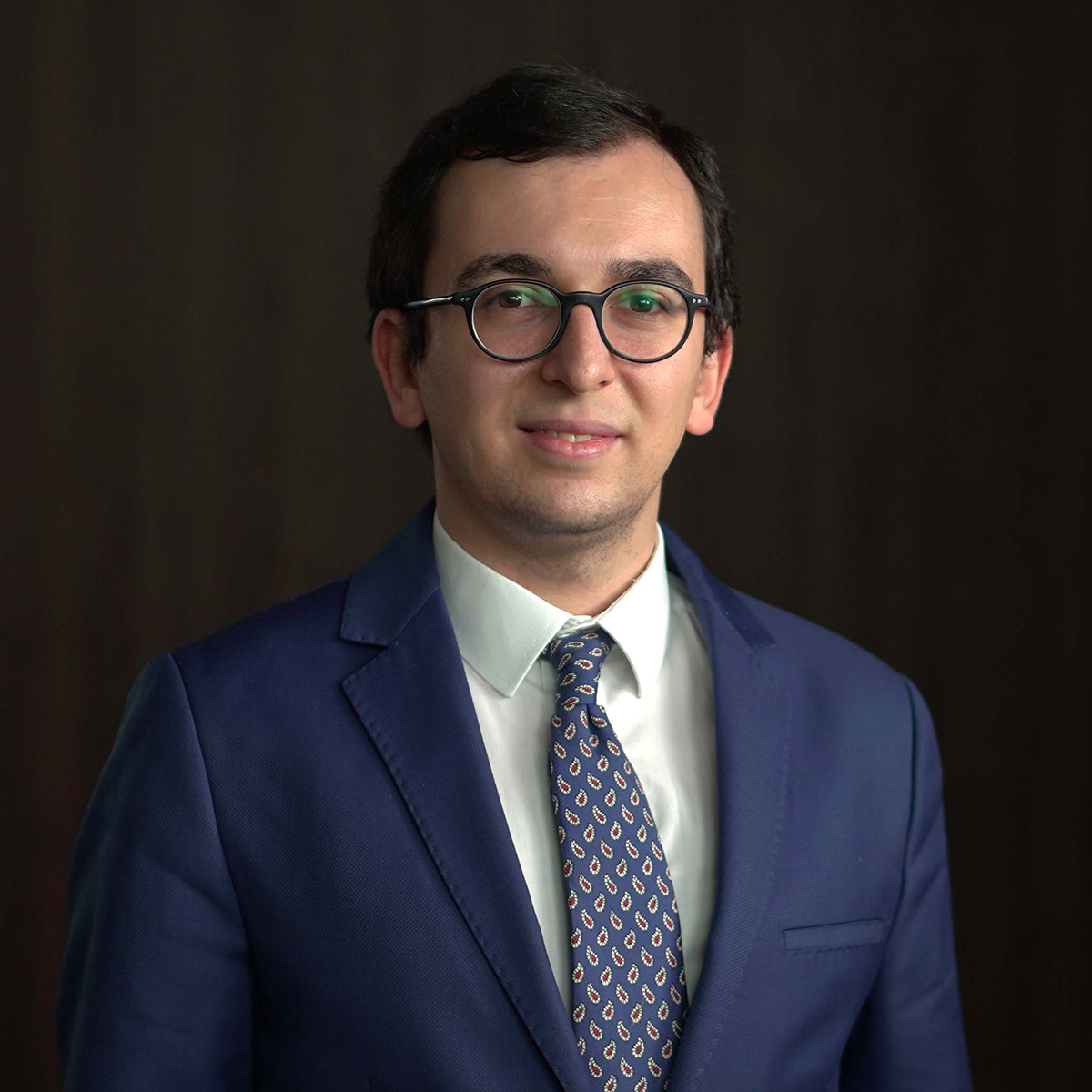The Case of Libya’s National Oil Corporation in the Olin v. Libya Dispute
I. Introduction
The Olin v. Libya dispute centres on what once looked like a promising investment, a dairy and juice factory established in Libya’s capital, Tripoli during a window of economic openness in Libya. But all that was only temporary optimism. With an environment of mounting political instability, the Government of Libya in 2006 saw fit to expropriate this investment. This was the prelude to a lengthy and complex legal battle spanning years and jurisdictions.
One of the turning points of this dispute came with the decision from the Paris Court of Appeal of 19 June 2025. This landmark judgment applied the “alter ego” doctrine of France, whereby arbitral awards against States can be enforced by piercing the corporate veil of State-Owned Enterprises (“SOEs”). In this case, assets of Libyan National Oil Corporation (“NOC”) were the target before the French court.
II. The Start of the Dispute: A Broken Promise and Expropriation
The Olin dispute arose during Libya’s push to reintegrate into the global economy in the early 2000s.[1] A Libyan national and sole shareholder of Cypriot Olin Holdings invested in a dairy and juice factory in Tripoli. This venture reflected not only entrepreneurial ambition but also optimism sparked by new investment-friendly legislation and Libya’s growing number of bilateral investment treaties (“BITs”) at that time. The 1997 Investment Law No. 5 and its 2003 amendment offered guarantees and incentives to attract foreign capital.[2]
However, this climate of reform proved fragile. In October 2006, the Libyan authorities abruptly issued an administrative order to expropriate Olin’s factory and land, claiming that the site was required for public housing. No compensation was offered, and the army began dismantling the facility.[3]
Interestingly, this move came shortly after Saif al-Islam Gaddafi, the son of then-leader Muammar Gaddafi, gave his populist “Together for Tomorrow’s Libya” speech, in which he targeted wealthy elites and promised homes and vehicles to the country’s youth. Although framed as anti-corruption, the campaign allegedly functioned as a tool for political targeting and for punishing those viewed as outside the favour of ruling elites.[4]
Olin’s expropriation thus illustrates how rapidly investment protections can erode, highlighting the risks faced by investors when State policy shifts from reform to repression.
III. Domestic Legal Battles: Judicial Deadlock and Frustrated Remedies
After the expropriation, Olin sought redress within the Libyan domestic legal system from 2006 to 2014, filing several claims for compensation. The most crucial moment in the process came on 13 April 2010 when the Tripoli Court of Appeal set aside the expropriation order as being unlawful under Libyan Investment Law. However, the Libyan authorities refused to enforce this decision, which thus became ineffectual.[5]
The final domestic judgment came on 14 February 2014, when the South Tripoli Court rejected Olin’s compensation claim, holding that there was no proof of damage.[6] When it was clear that the judicial system was ineffective in redressing its grievances, Olin resorted to international arbitration.
On 3 July 2014, the company initiated arbitration proceedings before the International Chamber of Commerce (ICC) pursuant to the 2004 Cyprus–Libya BIT, seeking nearly $148 million in compensation.[7] It alleged that Libya had breached its obligations under the BIT and Libyan foreign investment law, notably through unlawful expropriation and failure to accord fair and equitable treatment. This event clearly illustrates the conversion of a domestic legal dispute into an international investment dispute.
IV. International Arbitration: Evolving from Domestic Politics into International Law
The ICC tribunal, seated in Paris and composed of Lebanese arbitrators Nayla Comair-Obeid (presiding), Ibrahim Fadlallah, and Roland Ziadé, examined Olin’s claim under the 2004 Cyprus-Libya BIT. Finding Libya liable for acts of unlawful expropriation and violation of fair and equitable treatment, the tribunal awarded damages of € 18.225 million to Olin plus € 1.8 million in legal costs and interest on 25 May 2018.[8]
The enforcement process was extended and complex, with Olin seeking to enforce the award across several jurisdictions, confronting issues of sovereign immunity and the legal autonomy of SOEs.
In France, the target was NOC, Libya’s State-owned oil company, which largely controls the Libyan economy. French courts ordered attachments on the bank accounts of NOC and its shareholder rights in Mabruk Oil Corporation, a joint venture with TotalEnergies.[9] Meanwhile, U.S. courts enforced the arbitral award, rejecting Libya’s claims of immunity and objections on procedural grounds.[10]
In these circumstances, Olin’s case revealed the strategic difficulties encountered in enforcing awards against States in France, especially with respect to SOEs.
V. Piercing the Corporate Veil: Paris Court of Appeal Finds NOC to be an Emanation of Libya
One of the most significant aspects of Olin’s enforcement strategy was whether NOC should be designated as Libya’s “alter ego.” While NOC is technically a separate legal entity on paper, it functions as Libya’s main economic force by controlling national oil revenues. NOC had claimed that separateness of company from Libya.
But on 19 June 2025, the Paris Court of Appeal rejected this defence. Upholding a lower court ruling, the court held that NOC was an emanation of Libya and not immune.[11] This was a notable use of the “alter ego” doctrine employed to pierce the veil of corporate personality of SOEs where States have fallen short of international obligations.
The court applied a two-stage French case law test to ascertain whether NOC was functionally and financially independent. It identified unambiguous evidence of entanglement: NOC’s administration is statutorily regulated, it has government-appointed leadership, and State approval is necessary for its most important financial decisions. NOC’s revenues derive from State-owned hydrocarbon resources and flow to the Central Bank of Libya, and account for more than 95% of the national budget.
The court also dismissed Libya’s contention that enforcement was premature. While Libya actively participated in the arbitration proceedings, it waited until 2022, four years after the award, before it petitioned to set aside the award. This delay and lack of compliance, the court held, justified enforcement.
Having determined NOC’s alter ego status, the court permitted Olin to enforce the € 18.2 million arbitral award against NOC’s assets, even though NOC was not a party to the arbitration. This landmark decision highlights a growing judicial trend in France and beyond: non-autonomous SOEs may be regarded as State alter egos, with their assets vulnerable to enforcement action. It establishes the enforceability of arbitration awards by preventing States from using legal fiction to evade binding awards.
Two weeks later, on 1 July 2025, the Paris Court of Appeal also rendered two more judgments further solidifying Olin’s case.[12] The court confirmed the partial award on jurisdiction and final ICC award of over € 24 million in damages, interest, and legal costs.
Cumulatively, these June and July 2025 rulings removed all the procedural barriers to enforcement in France and laid a solid groundwork for financial responsibility of Libya through NOC’s assets, which are of paramount importance to the Libyan economy. This outcome comes nearly 20 years after the expropriation.
VI. French “Alter Ego” Doctrine: Piercing the Corporate Veil
The Paris Court of Appeal’s decision of 19 June 2025 reaffirmed the French application of the following principle: an SOE may be held liable for a State’s debt where it may be considered an “alter ego” or “emanation” of the State.
Based on the Court of Cassation’s 1987 decision in Benvenutti et Bonfant v. Banque commerciale congolaise,[13] the doctrine adopts a two-prong test: (1) lack of functional independence, where State has effective control over the management and decision-making of the SOE; and (2) commingling of funds, where the funds of the SOE cannot be separated from that of the State.
The test has been applied consistently by French courts.[14] In the Court of Cassation’s 2007 decision in SNPC v. Walker International,[15] enforcement against the French accounts of the National Petroleum Company of the Congo was upheld on the basis of its use to finance State operations. The court also allowed attachment of the Congolese SOE assets on the basis of its subordination to the presidency and absence of a distinct budget.
French courts’ substance-over-form approach focuses on governance structure, public service obligations, and money flows between State and SOE. Courts use a “concordant indicia” methodology, examining a combination of facts to decide whether or not an alter ego exists.
Although France’s Sapin II Law dated 2016 created procedural protection for foreign State assets,[16] it did not change the substantive alter ego test applied in determining when SOE assets can be confiscated. More recently, French courts have continued to hold[17] that SOEs, as instruments of State sovereignty, can have their assets confiscated under the same “alter ego” principle.
Therefore, the Olin v. Libya decision aligns with France’s position on the enforcement of arbitral awards against States and their instrumentalities, where corporate forms are employed to escape legal liability.
VII. Wider Implications
The French rulings in the Olin v. Libya dispute amount to a serious legal and strategic loss for Libya. Economically, Libya must confront the enforcement of more than € 24 million and legal fees. Strategically, the “alter ego” designation of NOC by the Paris Court of Appeal targets Libya’s economic titan and breaks the time-trusted armor sheltering SOEs from sovereign liability.
For investors, this is a significant shift in enforcement dynamics. Courts are increasingly looking beyond corporate form in order to identify true control and financial entanglement, facilitating the enforcement of arbitration awards where States default. This shift enhances international arbitration’s credibility in enforcing awards against States, particularly where they stubbornly resist compliance.
Politically, the case is a classic example of the long-term impact of domestic State action. The 2006 expropriation, rooted in Libya’s own internal political evolution, has resulted in foreign court liability nearly 20 years later. Olin’s decision to target NOC’s assets, as opposed to assets of the Libyan Investment Authority’s subsidiary Libyan Foreign Investment Company (LAFICO),[18] is a reflection of NOC’s liquidity and significance to Libya’s economy as well as its international financial position today.
The French courts’ action in the Olin v. Libya case is therefore a landmark in enforcement of awards against Libya, aimed at the vast assets of NOC, a dominant force in the Libyan economy.
VIII. Conclusion
The Olin v. Libya dispute perfectly illustrates how deeply intertwined politics, law, and economics are in international investment disputes. It unfolds from an investment opportunity to a politically motivated expropriation with no judicial resolution, culminating in a landmark arbitral award and enforcement litigation against Libya’s assets. The dispute helps frame critical cases on sovereign immunity and the function of SOEs.
The Paris Court of Appeal’s decision reveals the readiness of the courts to pierce the corporate veil and enforce liability against States through their SOEs, which serve as corporate shields. This broadens the legal protection for investors, as it allows to target NOC, Libya’s treasury in corporate disguise. The decision also demonstrates that sovereign immunity, while still a significant obstacle in enforcement proceedings, is not absolute and can be overcome.
With the growing tendency to use SOEs as a means of economic and political control, the Olin v. Libya dispute emphasizes the necessity of applying a practical and functional evaluation of State-SOE relationships for the enforcement of arbitral awards.
[1] Alison Pargeter, “Reform in Libya: Chimera or Reality?”, Mediterranean Paper Series, The German Marshall Fund of the United States, 2010 (“Pargeter, Reform in Libya”).
[2] Olin Holdings Limited v. Libya (“Olin v. Libya”), ICC Case No. 20355/MCP, Final Award dated 25 May 2018, paras. 80-82.
[3] Id., paras. 93-95.
[4] Nader Bushnaf and Partners Law Firm, “‘€24 Million – From a Dairy Factory to the Freezing of NOC Assets’”, Facebook, https://www.facebook.com/ElPashaLtd/posts/our-english-version-page-/1227472515842912/, accessed 11 August 2025; Pargeter, Reform in Libya, pp. 5, 15, 17.
[5] Olin v. Libya, paras. 101-110.
[6] Id., para. 120.
[7] Id., para. 17.
[8] Id., para. 552.
[9] Paris Court of Justice, Order No. 22/1576, dated 10 November 2022.
[10] U.S. Court of Appeals for the Second Circuit, Judgement, dated 12 July 2023.
[11] Paris Court of Appeal, Decision No. 24/07514, dated 19 June 2025.
[12] Paris Court of Appeal, Decision No. 22/20898, dated 1 July 2025; Paris Court of Appeal, Decision No. 22/20899, dated 1 July 2025.
[13] French Court of Cassation, Decision No. 85-14.843, dated 21 July 1987.
[14] Maria Kostystska, “Sovereign Immunity – France”, Lexology GTDT – Sovereign Immunity, 2023, pp. 10-11.
[15] French Court of Cassation, Decision No. 04-13.108, dated 6 February 2007.
[16] French “Sapin II” Law No. 2016-1691, art. 59 introduced three new articles into the French Code of Civil Enforcement Procedures (Articles L.111-1-1, L.111-1-2 and L.111-1-3) imposing strict conditions on seizing foreign State assets.
[17] Paris Court of Appeal, Decision No. 21/109197, dated 19 May 2022.
[18] Paris Court of Appeal, Decision No. 18/17592, dated 5 September 2019 found that LAFICO is an emanation of Libya.





